Polish Treasures at The Printed Book in Central Europe Conference
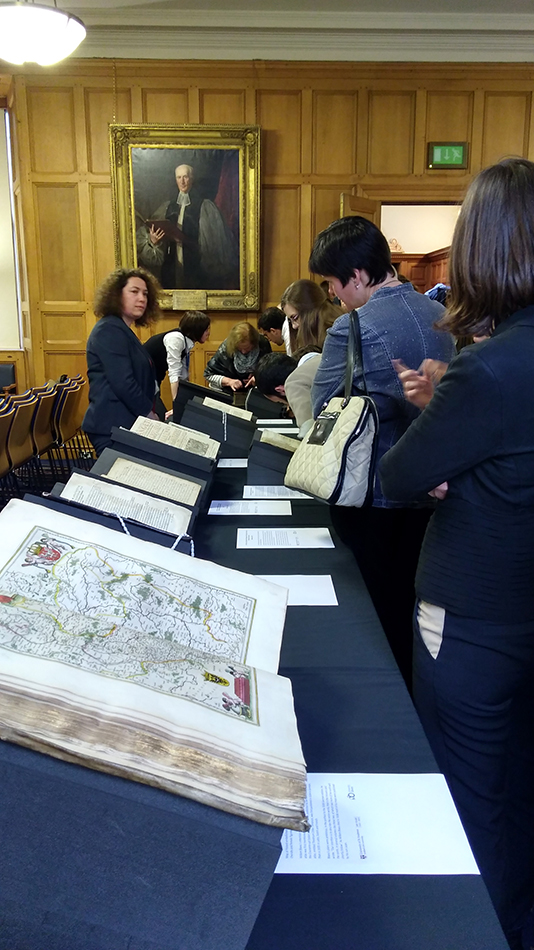 The St Andrews Book Project in the School of History, along with the Center for Austrian Studies at the University of Minnesota, hosted its annual conference this year from 29 June to 1 July. The conference theme was ‘The Printed Book in Central Europe’. Scholars from across Europe and America spoke on the rise of the printing press predominantly in lands east of the Holy Roman Empire. The Polish Embassy in London sponsored Polish scholars to attend the conference and the Polish Ambassador, His Excellency Arkady Rzegocki, attended the conference accompanied by his wife, Dr Jolanta Rzegocka.
The St Andrews Book Project in the School of History, along with the Center for Austrian Studies at the University of Minnesota, hosted its annual conference this year from 29 June to 1 July. The conference theme was ‘The Printed Book in Central Europe’. Scholars from across Europe and America spoke on the rise of the printing press predominantly in lands east of the Holy Roman Empire. The Polish Embassy in London sponsored Polish scholars to attend the conference and the Polish Ambassador, His Excellency Arkady Rzegocki, attended the conference accompanied by his wife, Dr Jolanta Rzegocka.
Hosted in Parliament Hall, the conference was one of the largest in years with around sixty attendees. The twenty-seven papers spread over two and half days provided many stimulating conversations. The conference prides itself on not having parallel sessions, which greatly enhances the quality of the question and answer periods with so many specialists in the audience.
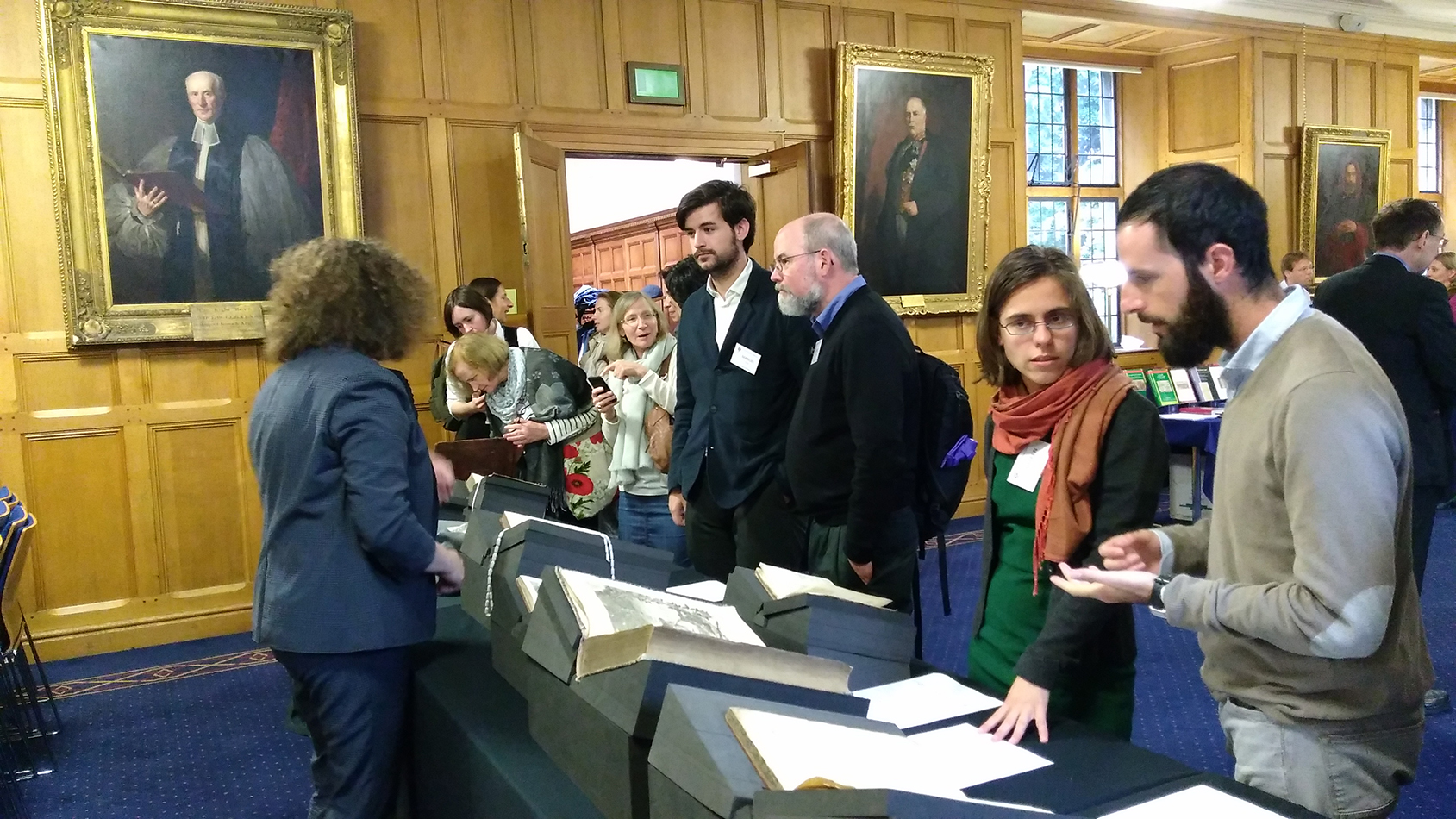 The conference began with a panel focusing on the transition from manuscript culture to print culture. Later in the day there were sessions focusing on printing in Transylvania and Jewish printing.
The conference began with a panel focusing on the transition from manuscript culture to print culture. Later in the day there were sessions focusing on printing in Transylvania and Jewish printing.
The Transylvanian panel, including Borbála Lovas, Radu Nedici and Maria Craciun, focused on papers about the reception of a Unitarian bishop, printing for Greek Catholics and the libraries of Lutheran clergy in Transylvania. The panel on Jewish printing included papers about Jewish printing in Prague, as well as the large library of David Oppenheim, presented by Joshua Teplitsky from Stony Brook University in New York and part of the digital humanities project, Footprints: Jewish Books Through Time and Place [https://footprints.ccnmtl.columbia.edu/].
Friday’s panels focused on the usage of woodcuts and engravings in central European printing, as well as the effects of the Reformation and Counter-Reformation. Luka Ilic spoke on printing in Slovenia, including printing in a non-Latin Slovenian script. Falk Eisermann of the Berlin State Library spoke of his project investigating smaller church libraries, one of the most common types of libraries in Germany, yet still one of the most understudied. The conference concluded on Saturday with James Brophy of the University of Delaware, who spoke on printers’ reluctance to adopt the steam press in the 19th century and the importance which the hand press continued to play.
The Polish Embassy graciously hosted a wine and (Polish!) beer reception, which featured a marvellous display by Special Collections of treasures from its holdings relating to the conference theme. University Principal Professor Sally Mapstone spoke to the guests on the history of St Andrews’ relationship with Poland, such as the more than 40,000 Scots who immigrated to Poland during the 17th century and the number of Polish soldiers who settled in St Andrews following the Second World War. The latter is memorialized by various monuments in town, including the bust of General Sikorski, the Prime Minister of the Polish Government-in-Exile and Commander-in-Chief of the Polish forces.
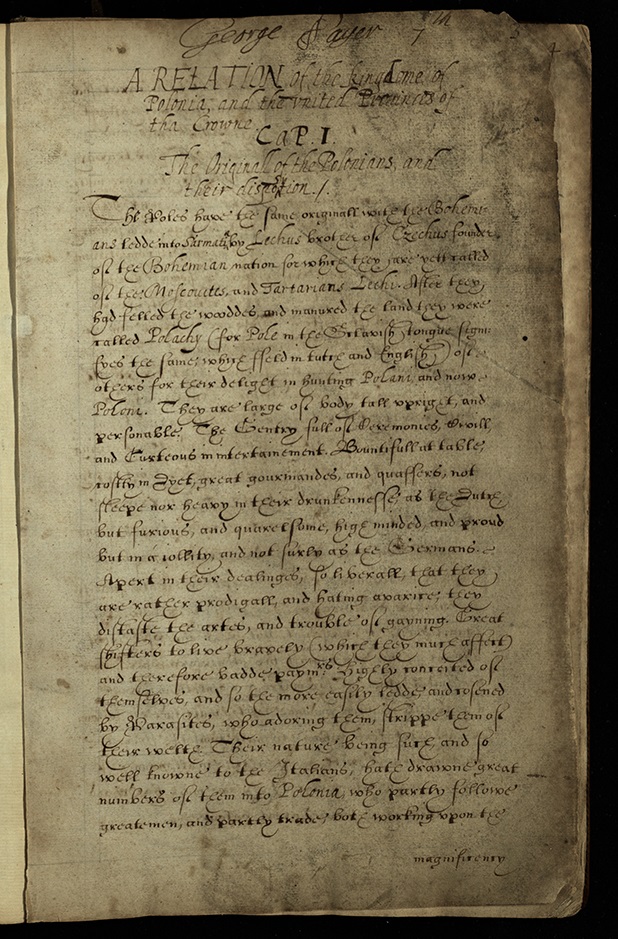
The Special Collections exhibit featured several items from the University’s collection relating to Polish history. One of the popular items was a 1599 manuscript of John Payton’s A Relation of the Kingdome of Polonia and the United Provinces of the Crowne (ms38902). It was the first English account of Poland-Lithuania’s politics, law, and administration, culture, and diplomatic relations. Long thought to have been by George Carew or William Bruce, the authorship has recently been proven to have been Payton. Although it was thought to have only survived in a single copy at the British Library, a new copy surfaced for sale in May 2013 and was acquired by the University Library.
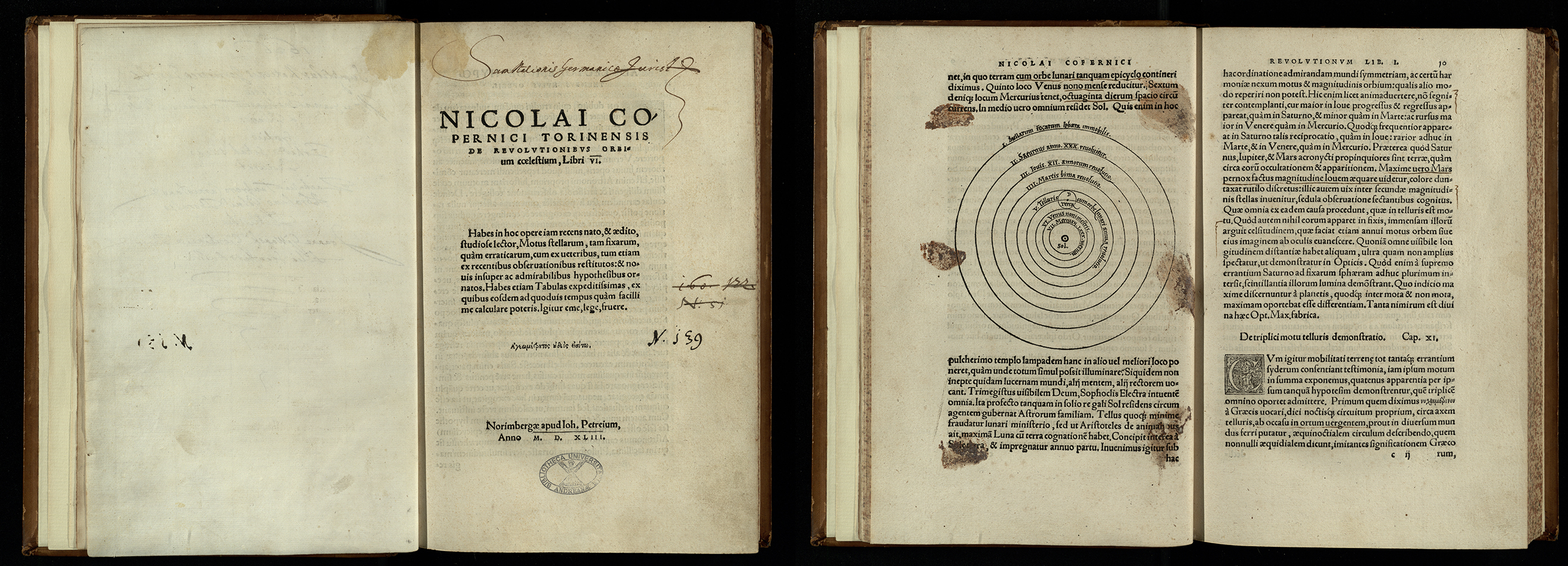
Also on display was a 1543 first edition of Nicolaus Copernicus’ De Revolutionibus, published by Johann Petreius in Nuremberg (For QB41.C6B43). Copernicus was born in Torún, Poland and later a canon at Frombork cathedral in Poland. His work, published just before his death, offered a heliocentric understanding of the solar system. It came into prominence after the trial of Galileo where is was put on the Index of Forbidden Books in 1616, where it would stay until 1820.
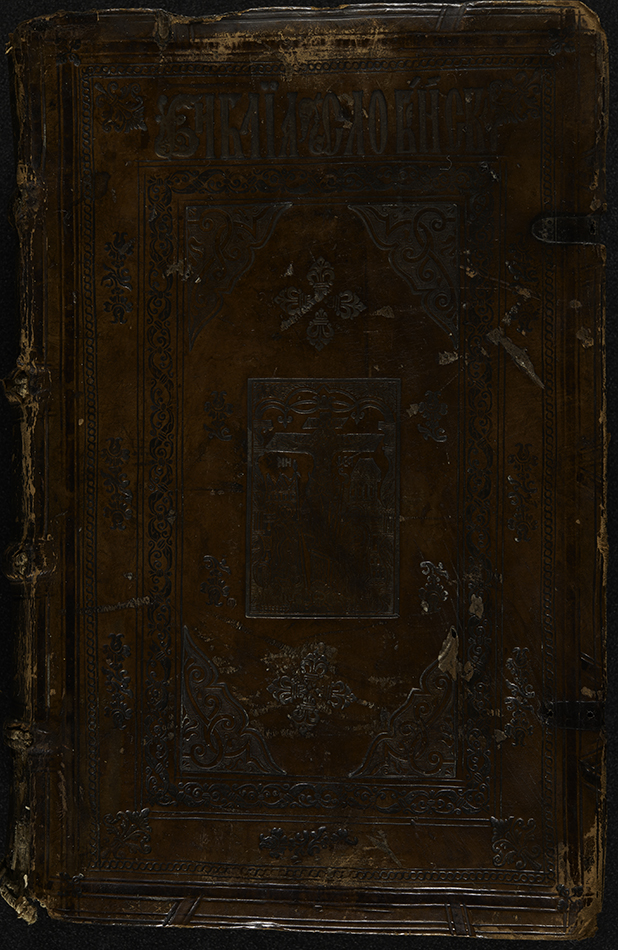
In 1581 Ivan Federov in Ostrog printed the first Bible in Slavonic, which was also featured in the display (Bib BS110.B81). It was a landmark in Russian printing and prepared under the auspices of Prince Vasyl Kostiatyn of Ostrih, the founder of a Greco-Slavonic seminary. Kostiatyn had several Greek and Slavonic manuscripts to consult as he prepared the Biblical text and replaced outdated expressions with modern ones. Conference delegates were particularly interested in the contemporary Russian/Polish binding.
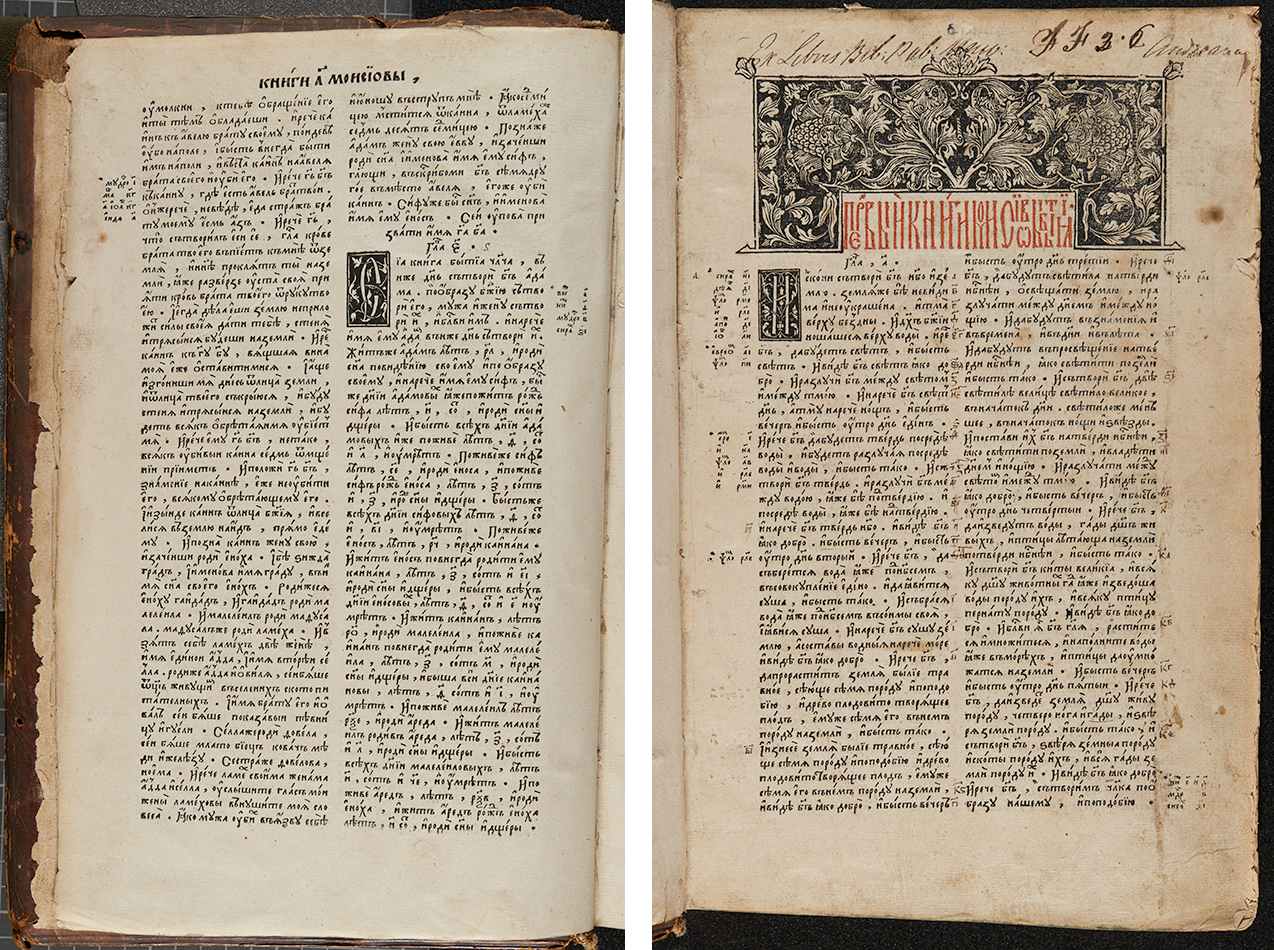
The reception ended with Professor Mapstone presenting a copy of A Companion to the Reformation in Central Europe to Ambassador Rzegocki as a token of our thanks for his country’s generosity. The presented volume, published by Brill, was co-edited by Dr Howard Louthan, co-organizer of the conference, and Dr Graeme Murdock from Trinity College, Dublin, who was also in attendance, as were many contributors to the volume.
The conference was a great success. The proceedings will be published in Brill’s The Library of the Written Word. Many thanks to Special Collections for their material support and for organizing such a wonderful display, which not only enhanced guests’ conference experience, but also demonstrated the importance and significance of the university’s collections.
Drew Thomas
PhD Candidate in the School of History